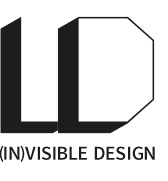Eye Candy
Eye Candy is a project inspired by a BBC segment on how blind people can see with the help of thier tongue. Beta Tank took an interest in how this could also affect the lives of sighted people. The use of physical sketches has since left a trail of engaging prototypes (Eye Candy, Mind Chair Polyprop, the working Mind Chair). Currently in the MoMA’s permanent collection, Eye Candy Can Ltd. is a spoof company set up to offer the different flavoured Eye Candies available to order. As part of the campaign, blogs and magazines were involved in order to spread the word. Although it was not apparent from the start, slowly the question of innovation in consumer products came up: as orders came in through the website, Beta Tank approached the maker of the technology and while it is unclear whether the product will be made, this has proved that a bottom-up approach in product design and manufacturing is a possibility. Between August 2008 and April 2009, 68,000 unique visitors from 15 different countries visited Eye Candy Can Ltd. with orders reaching 100,000 lollipops. Eye Candy is based on available technology which makes the production of it an entirely realistic option.
Eyal Burstein (born 1977 in Tel Aviv) is an Israeli, currently Berlin-based product designer. Eyal attended the London College of Printing between 2001–2004 and the Royal College of Art in London from 2004-2006. In 2007 Burstein founded Beta Tank, a conceptual product design studio in Berlin that uses design objects for social commentary. In 2008 he exhibited at the Design And The Elastic Mind Exhibition at the MoMA in New York, which was curated by Paola Antonelli. In 2010 Beta Tank was awarded Designer of The Future award by Design Miami during the Art Basel. In April 2011 Eyal published his first book called Taxing Art, an illustrated essay that discusses the way the tax system differentiates between art and design and thus inhibits creativity. The book was published by Gestalten.
